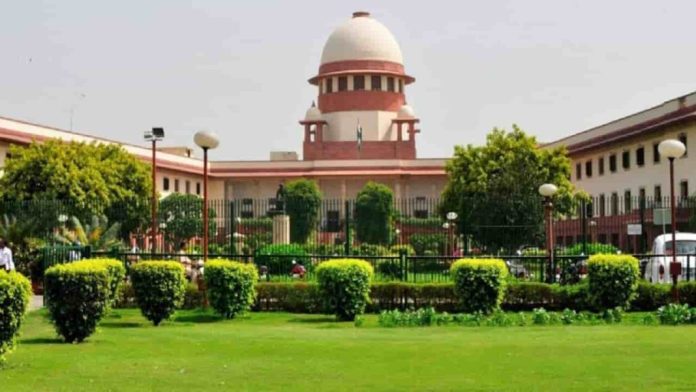The Supreme Court will hear on April 9, the question of whether an accused who was not arrested during the investigation period under the Prevention of Money Laundering Act (PMLA), would also be required to meet the law’s stringent conditions of bail if arrayed as an accused after the trial court took cognisance of the Enforcement Directorate (ED) complaint.
The matter pertained to a Punjab and Haryana High Court order denying the pre-arrest bail to several accused under the PMLA in a case related to an alleged land scam involving revenue officials.
In January this year, the Apex Court had granted the accused interim protection, and sought the response of the ED in the matter.
When the matter came up for hearing on March 1, the Counsel appearing for ED contended that the accused in a money-laundering case would otherwise be easily able to get bail.
The Bench of Justice Abhay S Oka and Justice Ujjal Bhuyan stated that the Bench was worried about the accused in such cases, who will have to meet the stringent twin test even after the cognisance stage.
The Bench noted that the case required hearing at length and listed the same for April 9.
The Bench will also consider on April 9 whether such an accused can be arrested by ED under Section 19 of PMLA after cognizance of the complaint has been taken by the special court under PMLA.
As per Section 45 of PMLA, the Court had to provide the Public Prosecutor an opportunity to oppose the bail application of the accused. The Court had the power to release the accused only if satisfied that there were reasonable grounds for believing that he was not guilty of the offence and that he was not likely to commit any offence while on bail. These conditions made it difficult for a money laundering accused to get bail.
The Apex Court further raised the question of whether the accused was required to apply for bail under regular provisions of the Code of Criminal Procedure (CrPC), if he appeared before a special court pursuant to the summons issued by the special court under PMLA.
The Bench noted that it would hear on April 9, whether the accused, if he appeared before the special court pursuant to the summons issued by the special court, would be required to apply for bail in terms of Section 437 of the Code of Criminal Procedure, 1973.
If the answer to the said issue was in affirmative, the other question was whether such a bail plea would be governed by the twin conditions imposed by Section 45 of the PMLA Act.
It would also consider whether such money laundering accused can be arrested by ED under Section 19 of the PMLA after cognizance of the complaint has been taken by the special court under PMLA.
The bench noted in its order that prima facie, it appeared that once cognisance of a complaint filed under Section 44 was taken by the special court under the PMLA, the power to arrest vesting under Section 19 of the PMLA Act cannot be exercised.
The bench will take up the matter on April 9.
The accused was represented by Senior Advocate Sidharth Luthra, along with Advocates Harshit Sethi, Nikilesh Ramachandran, Mansi Tripathi, Manmeet Singh Bindra, Nikhil Jain, Divya Jain, Rhail Mahajan, Shubham Seth, Anuj Panwar, Kamal Verma, and Lovekesh Aggarwal.
Additional Solicitor General SV Raju, along with Advocates Zoheb Hussain, Annam Venkatesh, Arkaj Kumar and Mukesh Kumar Maroria, appeared for the ED.


